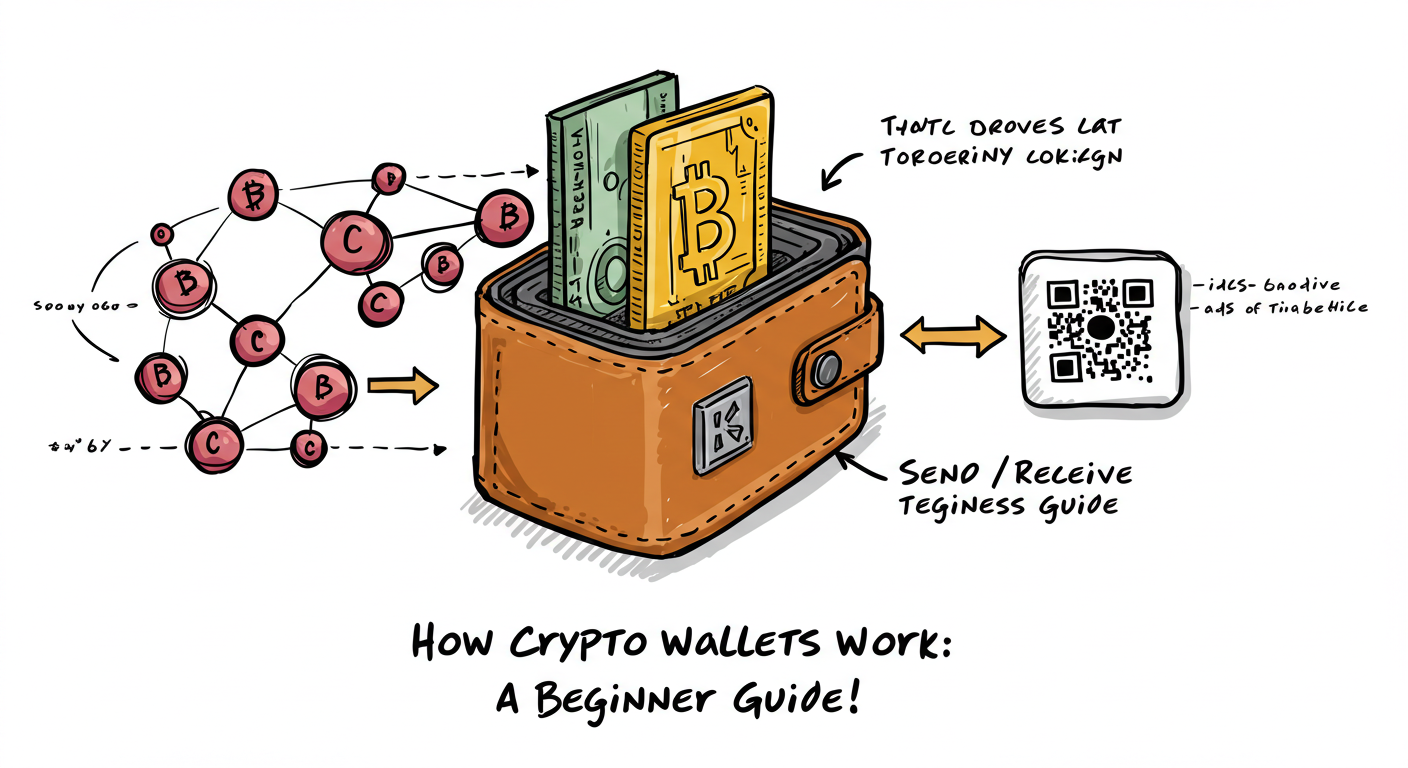
How Crypto Wallets Work: A Beginner’s Guide to Digital Asset Storage
- Posted on: July 7, 2025
What Is a Crypto Wallet?
A crypto wallet is a tool—software or hardware—that allows users to store, receive, and send cryptocurrencies. Unlike traditional wallets that hold physical cash, crypto wallets don’t actually store your coins. Instead, they store your private keys—the crucial credentials that give you access to your cryptocurrencies on the blockchain.
🔑 Public vs Private Keys
To understand how crypto wallets work, you need to understand cryptographic keys:
Public Key: This is like your bank account number. You can share it with others to receive funds.
Private Key: This is like your ATM PIN. It must be kept secret at all costs, because anyone with access to your private key can control your crypto.
Example:
If your wallet address is:
0xAbC123...456
That’s derived from your public key and can be used to receive Ethereum or other tokens.
If someone gets your private key:
d7e4f23b9abc...xyz
They can send all your funds elsewhere.
How Wallets Interact with the Blockchain
Crypto wallets don't hold your coins physically. All cryptocurrencies live on the blockchain. Your wallet’s job is to:
Generate keys (private/public)
Track your balance by scanning the blockchain
Sign transactions using your private key
Broadcast the signed transaction to the blockchain network
So, think of your wallet as a digital bridge between you and the blockchain.
Types of Crypto Wallets
There are several types of wallets based on how and where they store your private keys:
1. Hot Wallets (Online)
Examples: Mobile apps, desktop wallets, web wallets (like MetaMask)
Connected to the internet
Easy to use but more vulnerable to hacks
2. Cold Wallets (Offline)
Examples: Hardware wallets (Ledger, Trezor), paper wallets
Not connected to the internet
Extremely secure but less convenient
Sending & Receiving Crypto
When you send crypto:
You input the recipient’s public address
Your wallet signs the transaction with your private key
The network validates the transaction and adds it to the blockchain
Your balance updates accordingly
When you receive crypto, others send to your wallet address (public key). Your wallet detects it by scanning the blockchain.
Security Tips for Using Crypto Wallets
Never share your private key or seed phrase
Use wallets that allow 2FA (Two-Factor Authentication)
Backup your wallet’s recovery phrase in a safe place
Use cold storage for large amounts
Be cautious with browser extensions and phishing links
Crypto wallets are powerful tools that give you full control over your digital assets—but with great power comes great responsibility. Whether you're storing Bitcoin, USDT, or your EOT tokens on EootleX, understanding how wallets work helps you stay safe and confident in the crypto world.
